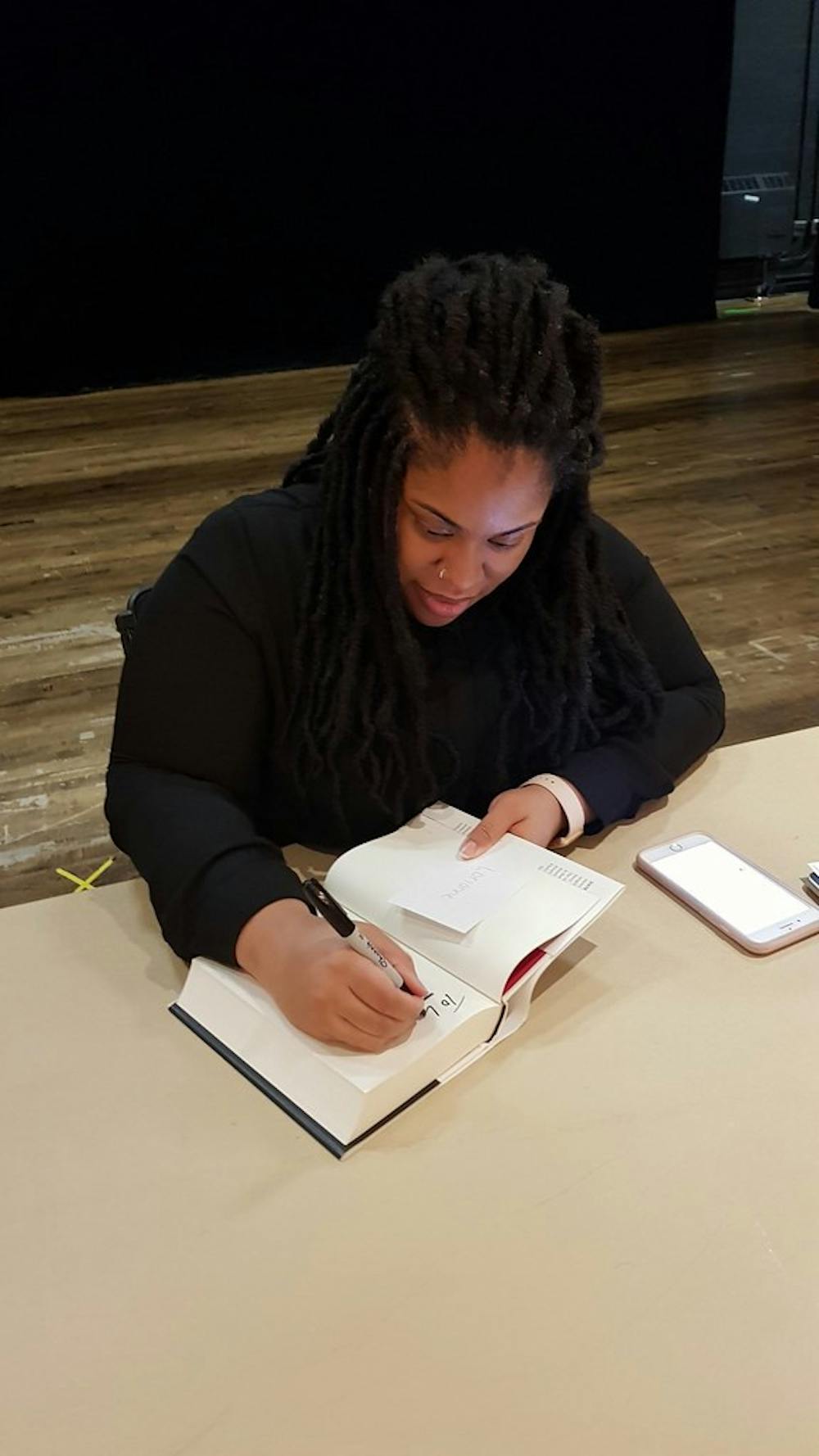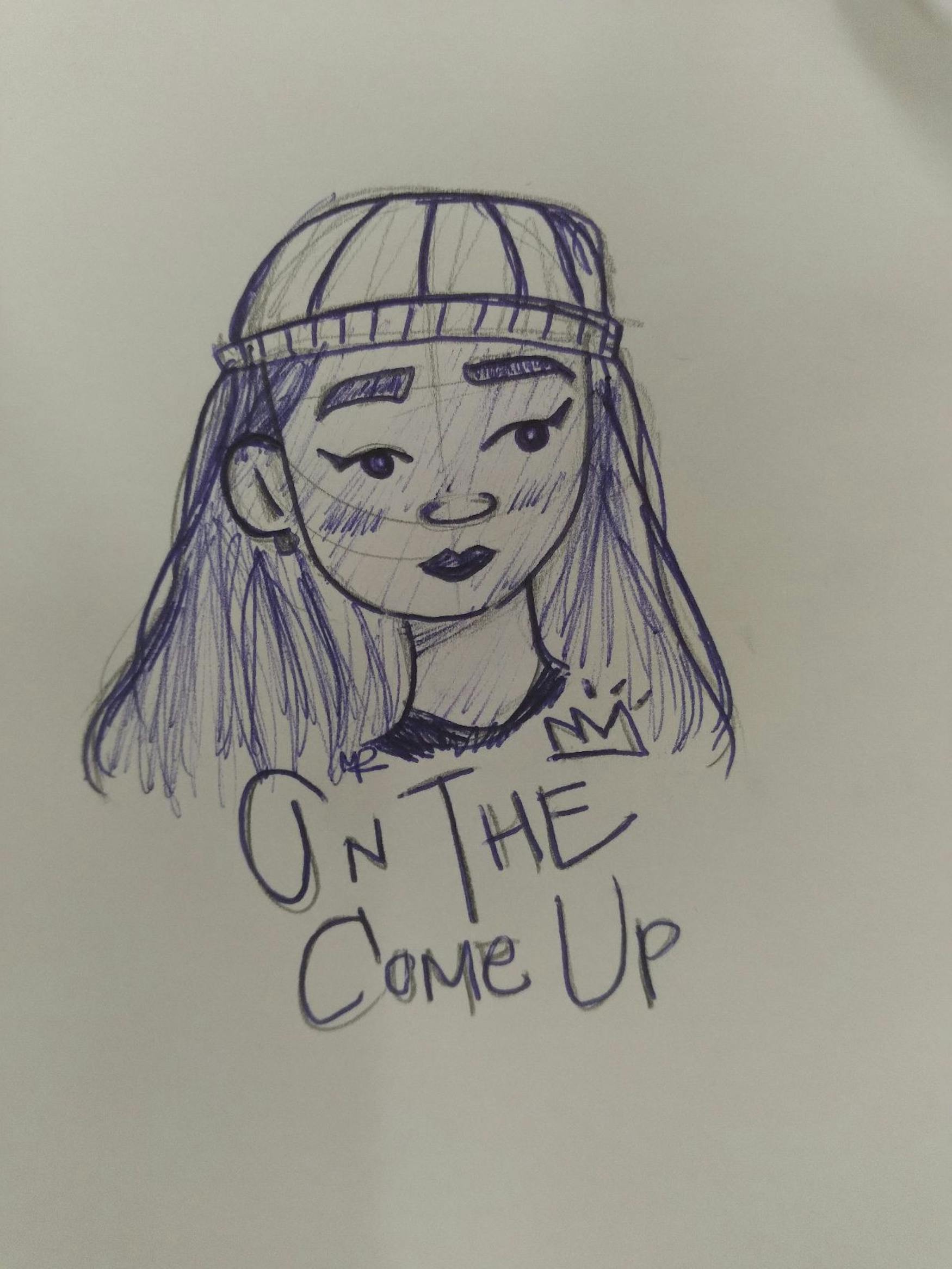Sanaa Lathan’s ‘On The Come Up’ is ‘Bri-lliant’
It seems as though most of us spent our summer doing internships, working, or trying to relax before getting back into the groove of all-nighters, exams, and papers. If you know me, I love to find new films, especially at the intersection of music and poetry. I rewatched several of my favorite films like “Hidden Figures” and some cute Pixar comfort movies, but I enjoyed watching “On the Come Up” the most. I initially read the book “On the Come Up” by Angie Thomas last summer, but I was beyond excited when I heard it was being turned into a film, specifically as Sanaa Lathan’s directorial debut.
As an aspiring director, it is incredibly difficult to find films that are not only directed and created by Black filmmakers, but also balance Black joy and Black pain without focusing solely on trauma.
Angie Thomas is a well-known author in the Black community who gained acclaim in her debut novel “The Hate U Give” which was turned into a film in 2018 starring Amandla Steinberg. While “The Hate U Give,” is so well articulated, “On The Come Up” just brought a fresh perspective and is now one of my top favorite films. It premiered at the Toronto International Film Festival in June 2022 and is now available on Paramount+.
“On The Come Up,” like “The Hate You Give,” takes place in the fictional city of Garden Heights. The film follows the story of a young black girl and looks at the intersection of race and gender within music, as well as the hypersexualization that lends itself to modern rap and hip-hop. The film, however, is more than just an analysis of music but also explores family, brokenness, poverty, and what success means.
In the opening scene, we are introduced to our protagonist, Brianna Jackson, played by Jamila C. Gray, as a teenager who has been through a very emotional time and who finds peace through poetry and rap. It is no secret that she is gifted at rapping, which some might attribute to the fact that it runs in her family. Her father, Lawrence “Lawless,” was an underground rap legend who was a victim of gang violence before he was able to “make it” in the mainstream hip-hop industry. To honor her father’s legacy, Brianna is consistently participating in a rap, competition which is seen as “the Hunger Games of hip-hop” at her local venue to prove herself as a rapper, especially being a girl.
Brianna has an older brother, who is a modern representation of the “talented tenth,” an educated Black kid who is still struggling. He is the first in his family to have graduated college and he plans to attend medical school, but he sacrifices his dreams of becoming a doctor to help his family when their mother loses her job. Brianna’s mother, Jay, however, is the opposite. An extremely important character, Jay is a recovering drug addict that is clean and constantly navigating her relationship with her children and with Bri in particular. Lathan is the main architect of the story, not only directing the film but also portraying the role of Jay. She creates a beautiful invention of the book and breathes life into the character, humanizing folks of color and folks that struggle with addiction. The climax of the film is really a series of domino-effects from various events. Brianna attends a predominantly white high school called Midtown School of the Arts and is constantly facing microaggressions. Having been one of the few Black students at her high school, her actions tend to be more heavily surveillanced than the other students’, and after selling Skittles and other candy to another student, the school security literally body-slams her to the ground. Her mothers’ instinct [immediately] to stand up for her daughter’s basic human rights was imperative to see, especially with their tension-filled relationship.
In the midst of all this, Bri rises in her rap game, calling herself ‘Lil Law,’ and she ultimately wins one of the rounds against the son of a famous — and wealthy — rapper and music producer called Supreme. Supreme reaches out with an opportunity and while it seems that Bri is “on her come up,” Supreme is really the antagonist of the film, as he believes that playing into stereotypes and selling one’s soul is the only way to survive in such a cutthroat industry. Brianna wants to use her passion to create her own message, but the pressure of poverty convinces her to write and record her first song. She falls into the trap believing “you say what you have to say to sell records,” even if that means playing into stereotypes. Initially, the song is a hit, but unfortunately it does not take long until it becomes a site of contention. She directly references the incident at her school, uses violent language, and makes a comment about the gangs in her neighborhood.
Unfortunately, the news and media paint Brianna as a thug, drug-dealer, and terrible student — and it doesn’t stop there. Several white parents are upset about their kids listening to Brianna’s music claiming her song is the reason for racially motivated events rather than a response to them.
Brianna’s life seems to go from bad to worse; her mother struggles with unemployment, and slowly the bills pile up, leading to the water, heat, and lights going out. The film exposes the reality of poverty; and Black people’s inability to fight the cycle; and the way society portrays them as lazy, government dependent, and unmotivated. The nearly two-hour film has a beautiful ending for our protagonist, as we get a chance to see Brianna’s family and friends give her the courage she needs to create her own success without compromising her music.
While the film carries such nuances on aspects of race and identity, I would be remiss not to discuss the gender politics at play when it comes to the rap and hip-hop industry. The rap battles in the film and the song Brianna writes and performs is so beautiful, because in several battles she not only rarely cusses, uses inappropriate language, or sexualizes herself, but she also criticizes others for reinforcing that in their music.
In my humble opinion, Lathans’ first work as a director delivers a strong visual presentation and balances the richness of the story and characters throughout the entire film without feeling too overwhelming. Everything from the music, costume design, lighting and cinematography make the film a powerful tool in telling the story of Brianna Jackson. That story is one of pain, yes, but also perseverance and ultimately brilliance, because you can’t spell brilliant without ‘Bri.’





Please note All comments are eligible for publication in The Justice.